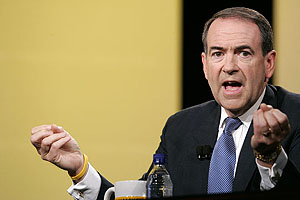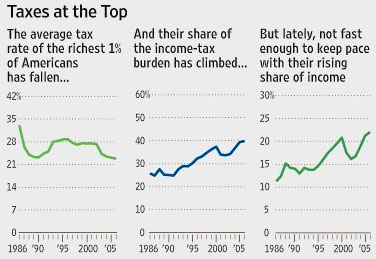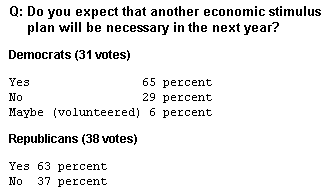A few days ago I suggested that although Barack Obama’s revenue projections for his greenhouse gas cap-and-trade plan might be a little optimistic, they were “in the right ballpark.” Partly this is because the plan won’t take effect until 2012, and I suspect that demand for energy will rise by then, increasing the auction revenue for permits enough to generate $80-100 billion per year. Megan McArdle disagrees:
I doubt economy-driven demand will have recovered by 2012. The major economies are crashing so hard that it will take years of growth to get demand back where it was, and the big developing countries that drove demand past capacity are in worse shape than we are….
[In addition] I think it is decidedly iffy whether congress actually passes any cap and trade system with teeth. For a cap and trade system to work, it will have to make energy more expensive at a time when incomes are declining. This will be very, very, very unpopular.
These are reasonable points, but my guess is that (a) demand will have largely recovered by 2012 and (b) the initial permit price will be low enough not to have a huge effect on the price of energy at first. So it won’t be all that unpopular. Beyond that, though, there’s another point buried here that’s worth unpacking a bit.
In my magazine piece (which you should read!) I go into a little more detail about the difference between cap-and-trade and a carbon tax, but the nickel version is simple: Financial folks generally prefer a tax because it’s predictable. You know exactly how big the tax is now and how big it will be in the future, and that allows you to plan your investments. Conversely, you don’t really know what effect any particular tax rate will have on carbon emissions. You have to take your best guess.
A cap-and-trade system is similar to a tax in the sense that you have to buy a permit for every ton of carbon you emit, but the predictability is exactly the opposite. There’s a firm cap, so you know exactly what effect the plan will have on carbon emissions, but you don’t know for sure what the permit price will be at any given time. If demand for energy rises, the price of permits gets bid up. If demand goes down, the world is awash in permits and the price goes down.
There are pros and cons to both a carbon tax and cap-and-trade, but here’s one of the pros of cap-and-trade: The price of permits is likely to go up in good times, when energy demand is high, and down in bad times, when energy demand drops. In other words, it’s countercyclical. During recessions the effective tax rate goes down, and it does so automatically. Macroeconomically speaking, that’s good. So that’s a point in favor of cap-and-trade.
As for whether Congress will pass a plan with teeth? Good question. As with a tax, there are lots and lots of opportunities for special interest tinkering in a cap-and-trade plan. Auctioning 100% of the permits, rather than giving some of them away to existing polluters, is the key issue to insist on, but there are others too (it’s point #9 in my article). Later this year we’ll see if Obama can keep the sausage factory on the straight and narrow.











